NHS waiting list could soar to 14 million in England next year, report warns
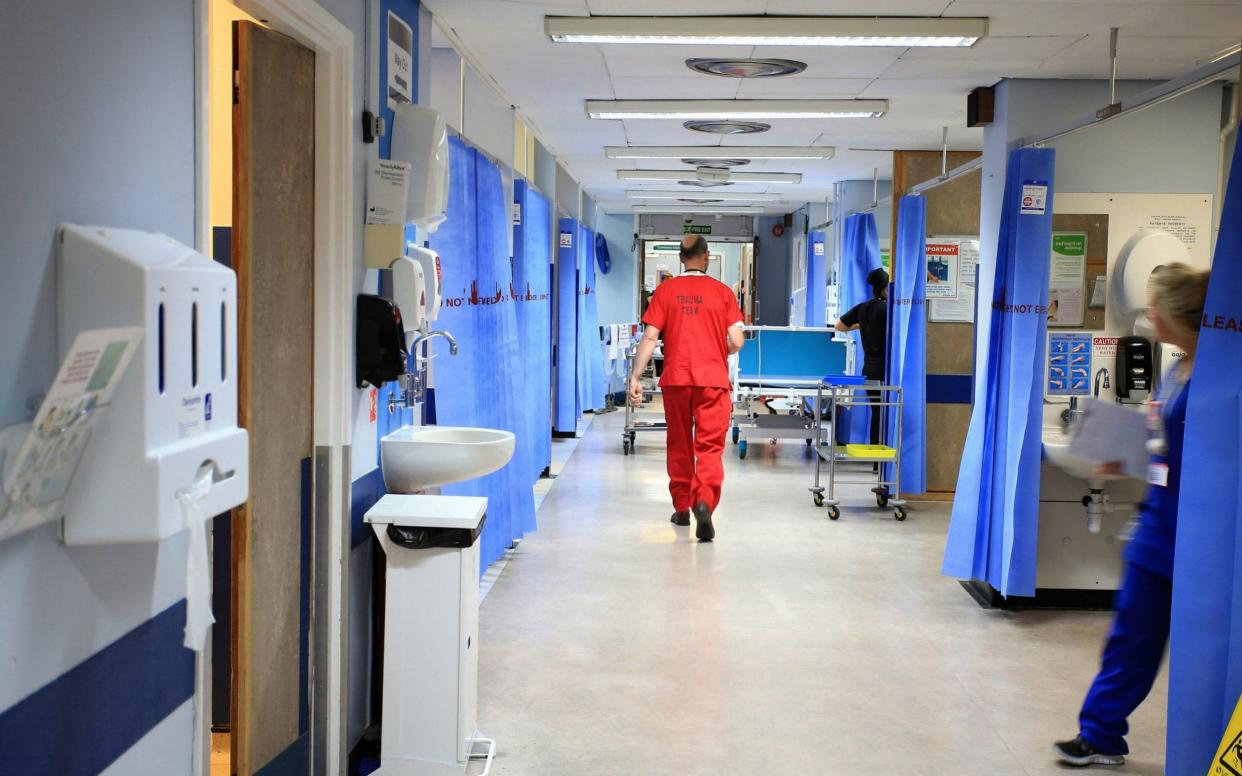
04:30 PMWhat happened today?
What happened today?
Good evening. That's it for another day of our global health live blog - here are today's main developments:
The NHS waiting list could grow to 14 million by autumn 2022 and continue to grow beyond that amid the ongoing coronavirus backlog, a leading think-tank warned.
The US city of Austin in Texas, home to 2.4 million people, has just six available intensive care beds, as American coronavirus cases hit their highest level in six months.
The Army is on standby to restock Britain’s shelves as military HGV drivers are prepped to deliver food and essentials to supermarkets amid the truck driver shortage.
Airlines reduced prices for flights to countries that have been put on the green list to attract holidaymakers for a last-minute summer getaway.
Boris Johnson’s green agenda has been plunged into chaos amid fears Covid has "added massive complications" and that the costs of reaching “net zero” could cripple working class families.
And an artificial intelligence heart scanner promises to cut the NHS backlog in half by delivering results within 15 minutes, scientists have found.
04:18 PMArmy on standby to restock Britain’s shelves amid truck driver shortage
Army on standby to restock Britain’s shelves amid truck driver shortage
The Army is on standby to restock Britain’s shelves as military HGV drivers are prepped to deliver food and essentials to supermarkets amid the truck driver shortage, writes Dominic Nicholls.
No formal request has yet been received by the Ministry of Defence (MoD), but military drivers could be first in line to help Britain’s beleaguered supply lines as the “pingdemic” continues to hit logistic firms.
The shortage of qualified drivers has reached crisis point, with ministers now examining every means possible to keep Britain supplied.
Any action carried out by the armed forces will come under existing plans codenamed Operation Rescript.
Britain already had a shortage of 100,000 truck drivers – the situation has worsened with the NHS Test and Trace pingdemic.
04:00 PM'Pandemic of the unvaccinated' hits America
'Pandemic of the unvaccinated' hits America
The US city of Austin in Texas, home to 2.4 million people, has just six available hospital beds in its intensive care wards, as American coronavirus cases hit their highest level in six months, with 100,000 infections a day, Jamie Johnson reports from the States.
Officials in the lone star state described the situation as “dire”, while Governor Greg Abbott was accused of having “deaths on his hands” for preventing counties, cities, public health authorities and local government bodies from requiring people to wear masks or be vaccinated.
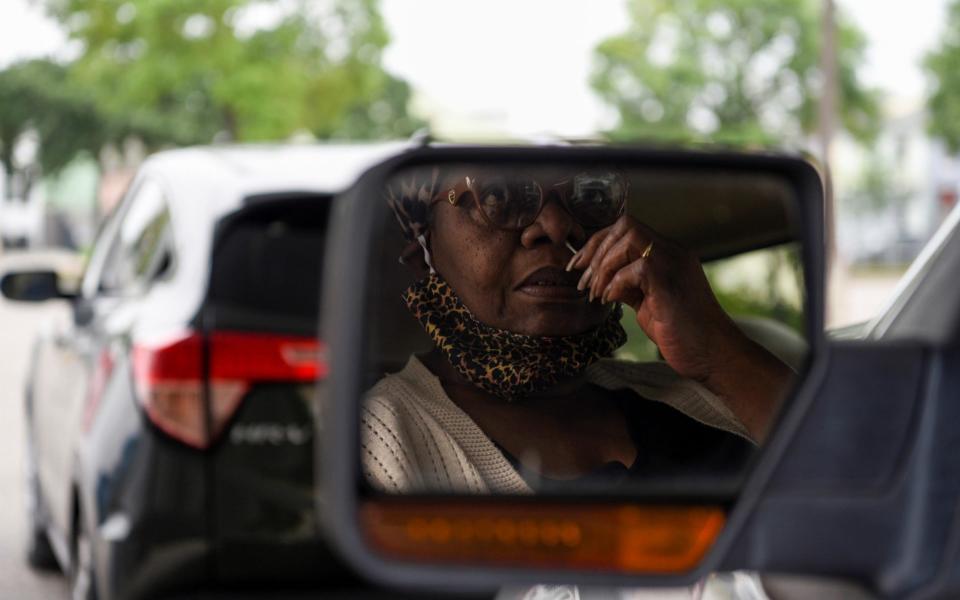
In a dramatic illustration of the crisis, an 11-month-old girl with Covid-19 had to be airlifted more than 150 miles from Houston to Temple for treatment this week because all five pediatric hospitals in the state’s largest city were full.
The US is suffering a significant spike in cases with the arrival of the delta variant. On June 22 there were just 11,299 new cases, but this weekend, that soared to 107,143.
Joe Biden, the US President, has declared the latest wave as “the pandemic of the unvaccinated” with half of the population still not double jabbed despite vaccine availability across the nation.
03:48 PM251,573 vaccinations today
251,573 vaccinations today
That breaks down into 37,990 first doses and 213,583 second doses across the UK.
Overall, 88.9 per cent of British adults have now had their first dose of a coronavirus vaccine.
Almost three in four (74.5 per cent) have had both jabs.
03:30 PMHidden ‘dark kitchens’ fuel our delivery addiction
Hidden ‘dark kitchens’ fuel our delivery addiction
The lockdown delivery bonanza has resulted in disused railway arches and industrial units becoming home to some of the UK’s fastest-growing startups as “dark” stores and kitchens spread across the country.
Now awash with venture capital but deprived of stay-at-home restrictions, the pioneers of “quick commerce” are aiming to change the way we shop and eat for good.
Dark stores and kitchens do not serve customers in person, meaning operators can make savings on staff, rent and operational costs.
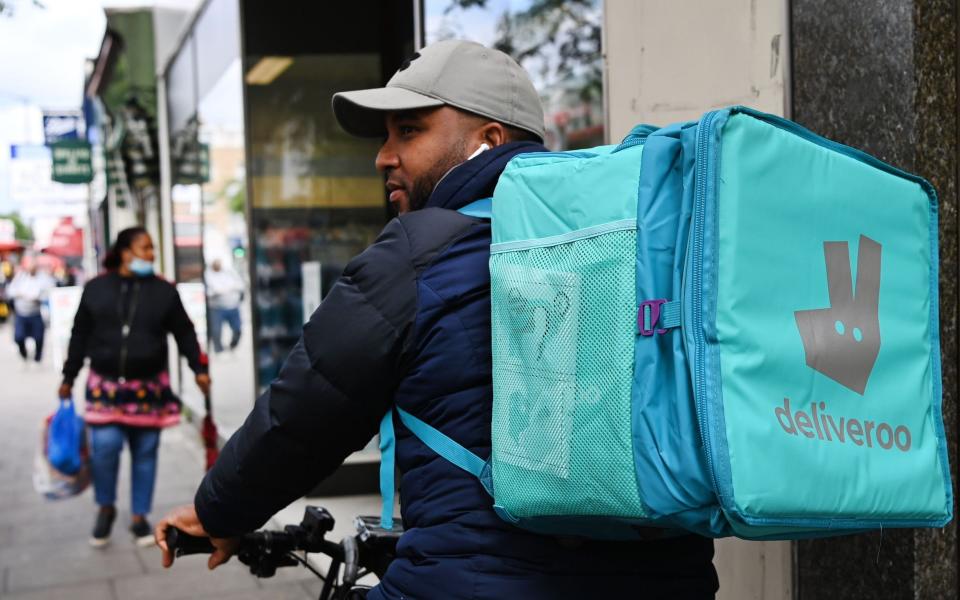
“We’re essentially a team of chefs in the kitchen,” says Jonny Boud, founder of Kitchen Ventures. “We don’t have managers or front of house and bar staff.”
He says the beauty of dark kitchens is the ability to service customers who want different cuisines, “so out of one kitchen, we can cook multiple things”.
Sam Hall and Ben Gartside have more in this must-read piece.
03:03 PM27,429 new Covid cases and 39 new deaths confirmed
27,429 new Covid cases and 39 new deaths confirmed
A further 27,429 coronavirus cases have been confirmed by the Department for Health across the UK.
Week-on-week, cases have grown by 1.9 per cent, but they are still significantly lower in mid-July, when the average daily number of cases topped 47,000. The current seven-day average daily caseload stands at 25,767.
A further 39 people have also died within 28 days of a positive coronavirus test.
Pressure on hospitals from Covid patients also appears to be easing, with 742 patients admitted on August 3, down 15.9 per cent week-on-week.
02:47 PMMost new Vietnam cases are in epicentre of country, officials say
Most new Vietnam cases are in epicentre of country, officials say
Most of Vietnam's record new caseload has been detected in the epicentre Ho Chi Minh City and the neighbouring provinces of Binh Duong and Dong Nai, authorities have said.
The Delta variant has put paid to Vietnam 's previously successful containment of the virus, and infections have gradually climbed since the end of April.
The country has recorded 210,405 Covid infections since the pandemic began, with at least 3,397 deaths, according to its health ministry.
02:22 PMNHS waiting list will surpass nine million even in best case scenario, report finds
NHS waiting list will surpass nine million even in best case scenario, report finds
The NHS waiting list could grow to 14 million by autumn 2022 and continue to grow beyond that amid the ongoing coronavirus backlog, a leading think-tank has warned.
The Institute for Fiscal Studies (IFS) said patients awaiting medical care could outnumber the number who are receiving treatment in the wake of the pandemic.
“In our first scenario, 80 per cent of the approximately seven million 'missing' patients return over the next year, the NHS operates at 90 per cent of its 2019 capacity this year and next, and then at 100 per cent capacity from 2023 onwards,” the report said.
“Under this scenario, waiting lists would soar to 14 million by the autumn of 2022 and then continue to climb, as the number joining the waiting list exceeds the number being treated.”
02:05 PMCovid adds 'massive complications' to Johnson's green targets
Covid adds 'massive complications' to Johnson's green targets
One adviser of COP26, the climate conference due to be hosted by Boris Johnson in November, said: “I don’t think ministers knew what they were getting in to” when they set targets for the conference.
These include as securing commitments from attendees that will limit the rise in global temperatures to no more than 1.5C.
One official said: “There was a massive expectation on us as members of the G7 and home of the industrial revolution. Boris was trying to grab as much as he can and to be a mighty great host... But Covid has added massive complications.”
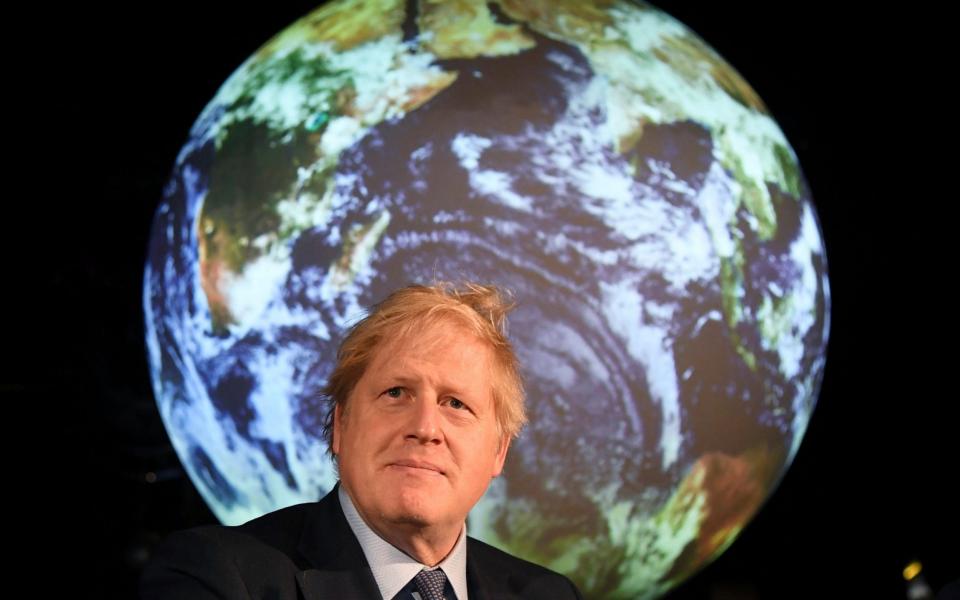
Amid growing disquiet among Tory MPs, a new net zero scrutiny group of backbenchers is being formed to hold ministers to account over the plans.
Craig Mackinlay, its chairman, warned that spending vast sums on subsidising green schemes would be seen by the public as “aping” some of Jeremy Corbyn’s pledges at the 2019 election.
Edward Malnick and Emma Gatten have the full story.
01:40 PM'We are heading for an inflation crisis. And the furlough scheme deserves much of the blame'
'We are heading for an inflation crisis. And the furlough scheme deserves much of the blame'
You don’t have to wait for the ONS to tell you what is going on in the economy – often you don’t need to look much beyond your own nose, writes Ross Clark.
In January I priced-up the cost of a little cricket pavilion for my cricket club at £23,000. Last week, I updated the quotes to find that the cost has suddenly risen to £31,000. How come? Global timber prices have soared, thanks to a combination of shipping costs and, no doubt, ever-rising demand for eco-buildings and wood to burn in biomass power stations.
And then there is the cost of labour – something for which many firms report themselves to be desperate. According to KPMG and the Recruitment and Employment Confederation, wages are rising at the fastest rate since they started compiling figures in 1997. Vacancies, they say, are now 9.9 percent higher than they were before the pandemic. That may be good news of a kind – it shows that the economy is recovering at a fair rate, and it is great news if you happen to be looking for a new job.
Yet it is a little difficult to reconcile the apparent boom in the jobs market with another reality: that we have more potential members of the workforce sitting idle than we did in the depths of the early 1980s recession.
As well as having 1.6 million people unemployed, 1.9 million workers were still on furlough at the end of June. You can see why, in the depths of lockdown, there were a lot of people forced to sit on the sidelines temporarily – there were 5.1 million on furlough in January. But 1.9 million people expecting to return to their old jobs?
01:18 PMZoos and pets pose same threat for disease ‘spillover’ as wet markets, study suggests
Zoos and pets pose same threat for disease ‘spillover’ as wet markets, study suggests
Animals in zoos and domestic pets should be taken more seriously as “breeding grounds” for viruses that could infect humans, according to a new paper in a leading journal, writes Jennifer Rigby.
The focus during this pandemic has been on the risks of wet markets and the international wildlife trade for causing “spillover” events, but animals closer to home could also pose a similar threat, according to the paper in the Journal of the Royal Society of Medicine.
“Domesticated animals in high-income countries are as much a threat as the oft-cited wildlife in wet markets or equatorial rainforests,” write the paper’s authors, led by Dr Gemma Bowsher at King’s College London.
The paper argues that better surveillance and testing of these animal populations could be as important as an early warning sign for the next zoonotic disease, the term for pathogens which cross from animals to humans.
01:00 PMVariants could be named after star constellations when Greek alphabet runs out
Variants could be named after star constellations when Greek alphabet runs out
New coronavirus variants could be named after star constellations once letters of the Greek alphabet are exhausted, a senior World Health Organization official has suggested.
In an interview with the Telegraph Maria Van Kerkhove, the WHO’s technical chief for Covid-19, said the UN health agency was already looking at new names for mutations amid fears there will be more concerning variants than the 24 letters of the Greek alphabet.
That system was introduced in late May and so far 11 mutations have been named: four variants of concern, including delta and beta; four variants of interest, such as eta and lambda; plus epsilon, zeta and theta, thought to be “of interest” but since downgraded.
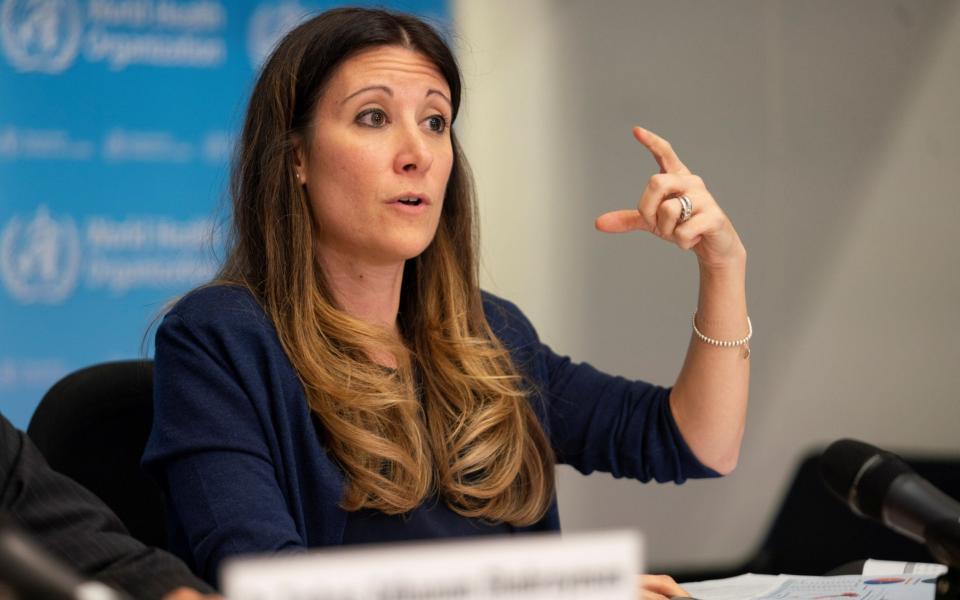
But as the coronavirus continues to mutate, it is possible there will be more key strains than available letters.
Dr Van Kerkhove said star constellations are the current frontrunner to follow the Greek alphabet, suggesting we could one day see variants known as Aries, Gemini or Orion.
Sarah Newey has all the details.
12:48 PMVietnam logs record number of cases
Vietnam logs record number of cases
Vietnam's health ministry has reported 9,690 coronavirus infections today.
This is a record day-on-day increase in the country's number of infections, and up from the 7,334 cases that were confirmed on Saturday.
Global supply chains have been affected by rising Vietnamese cases, with factories which manufacture products for the likes of Nike and Adidas forced to shut after outbreaks.
However health officials in Ho Chi Minh City have said cases have started "plateauing", leading to hopes that the country may be over the worst of its current wave.
The current Delta wave has lasted for more than 100 days and it has seen curfews imposed at night, unlike in previous waves experienced in Vietnam. Authorities have also introduced regulations meaning that people must have essential or specific reasons to leave their homes.
12:37 PM'We parents need confidence, not confusion, over jabs for our kids'
'We parents need confidence, not confusion, over jabs for our kids'
It doesn’t take an epidemiologist to work out that as more vulnerable members of the population acquire resistance through double jabbing, the virus is being forced to find new hosts, writes Judith Woods in her new column.
Still, she refuses to be bullied by those on either extreme of the vaccination debate when it comes to inoculating other age groups.
Some scientists are now mooting vaccinations for 12-year-olds. How young is too young to receive the jab? And are they being protected for their own sake or for the sake of others?
She is not suggesting that would be wrong; herd immunity is a legitimate aim – but parents need full transparency. She says that we also need to know if our children would need vaccines to travel, attend school and so forth - although the scaremongering (deliberate no doubt) about students needing vaccine passports to attend university has been kicked into the long grass.
12:10 PMRussia reports 787 new Covid deaths
Russia reports 787 new Covid deaths
Russia has reported 22,866 new Covid cases and 787 deaths in the last 24 hours, as it continues to be hit hard by the spread of the Delta variant.
It has led to a surge in hospitalisations and deaths since June, while some regional authorities have brought back restrictions and others have moved to make vaccination compulsory.
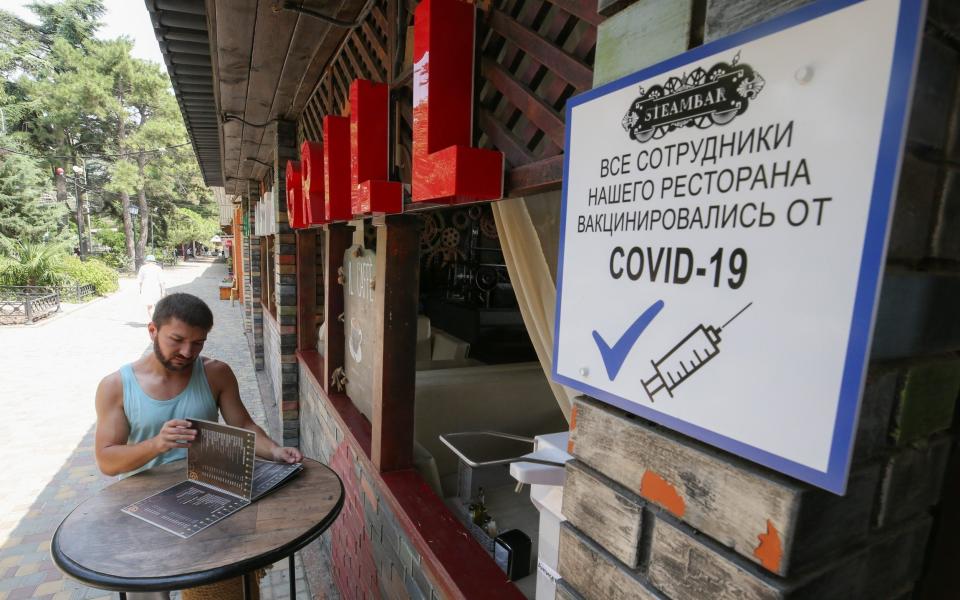
Since the pandemic began, Russia has recorded more than half a million excess deaths, according to official figures published on Friday.
More than 185,000 people died from all causes in June 2021, up by 26 per cent on the figure for June 2019.
11:43 AM'Despite Covid restrictions, I'm happiest in the temperate and kindly British isles'
'Despite Covid restrictions, I'm happiest in the temperate and kindly British isles'
This has to be the only country in the world where restrictions on foreign holidays could dominate front page headlines for weeks, writes Janet Daley.
Can anyone seriously suggest that the British – a sea-faring, island people enraged by the prospect of being confined within their own borders – are xenophobic?
But whatever broadmindedness it indicates, this is a bewildering phenomenon to someone who comes from a nation where half the population does not even own a passport. So I am sorry to say that this is one aspect of the British national character which I find it impossible to embrace.
I am not even sure that I understand the endlessly reiterated complaint about British weather which is what so many adduce as justification for fleeing every summer.
Having spent my childhood in cities (Boston and New York) which were hell holes of heat and humidity from June to August (Washington is even worse), then later a period in the California desert whose summertime temperatures become life-threatening, I regard the temperate climate of this country as bliss.
11:21 AM'If we’re not careful, booster vaccines could end up giving the coronavirus a boost'
'If we’re not careful, booster vaccines could end up giving the coronavirus a boost'
In the eight months since Covid-19 vaccines first became available, nearly four billion doses have been administered, and yet the number of cases and deaths continues to rise, writes Dr Seth Berkley.
Why? For the simple reason that we are not making the most efficient global use of the doses available. Now, as evidence is emerging about the potential benefits of booster shots in the face of the continued spread of Delta variant, offering fully vaccinated people a third dose before it is absolutely necessary is in danger of becoming the latest example of this.
Research into boosters remains an essential part of the pandemic response because if protection from existing Covid-19 vaccines does eventually start to wane or new variants emerge that are more resistant to vaccines, then boosters could potentially offer enhanced protection.
But both these scenarios will become self-fulfilling prophecies if countries with high Covid vaccine coverage start making boosters available now, and to all citizens, because it will delay efforts to protect more people. The sooner we start using boosters, the more likely we’ll need them.
11:01 AMGovernment rings in changes to green and amber lists
Government rings in changes to green and amber lists
France has been removed from the Government's 'amber plus' list as of this morning, ending the requirement for fully jabbed holidaymakers to quarantine on their return to England.
India, UAE, Bahrain and Qatar have also been promoted from the red list to the amber list - while a further seven nations have been added to the green list, meaning that all returning Britons are exempt from isolation on return regardless of their vaccination status.
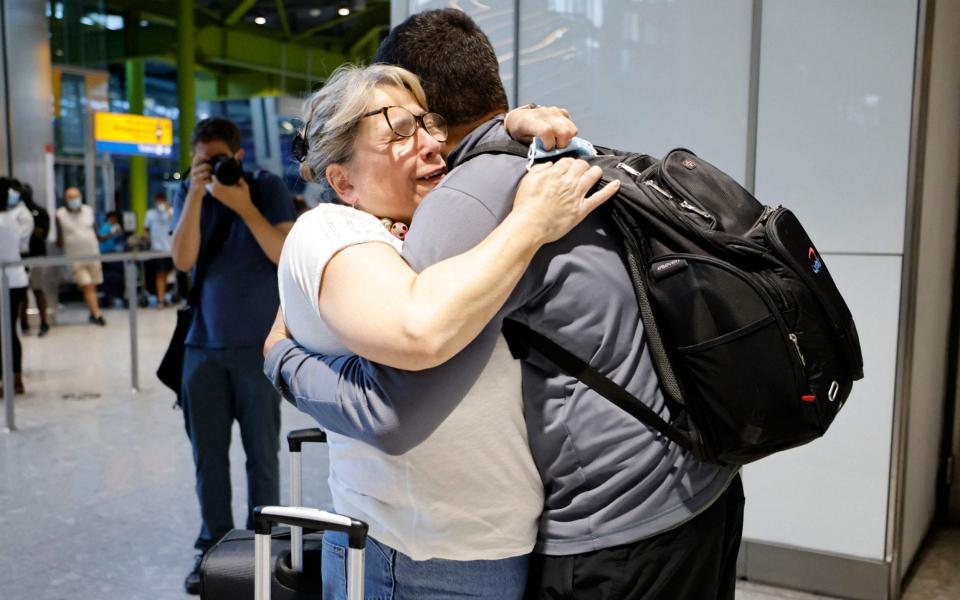
Millions of British holidaymakers are now able to return from amber list destinations without facing self-isolation – a rule that was extended to double-jabbed EU and US citizens from Monday.
The waiving of quarantine for fully vaccinated British adults (and under-18s) returning from amber countries came into effect on July 19, offering fresh hope for overseas trips this summer.
Read our comprehensive guide to the amber list here.
10:51 AM542 deaths a new record high in Iran
542 deaths a new record high in Iran
Iran has recorded more than 500 daily Covid deaths for the first time, its health ministry announced today.
It coincides with a new high in the number of coronavirus infections confirmed in the country.
In the past 24 hours, Iran registered a record of 39,619 positive cases and 542 deaths.
10:45 AM‘Turbo charged’ vaccines post promising results for debilitating chikungunya virus
‘Turbo charged’ vaccines post promising results for debilitating chikungunya virus
Two separate vaccines for one of the world’s most neglected and debilitating diseases have posted promising results in clinical trials, raising hopes a protective jab could be available soon.
Chikungunya, a viral infection spread by mosquitoes, is estimated to affect more than a million people annually, but there are currently no effective vaccines or treatments.
It is most prevalent in the Americas, parts of Africa and southeast Asia, but increasing numbers of outbreaks have been reported in Europe in recent years as a result of climate change and the spread of the mosquito further north.
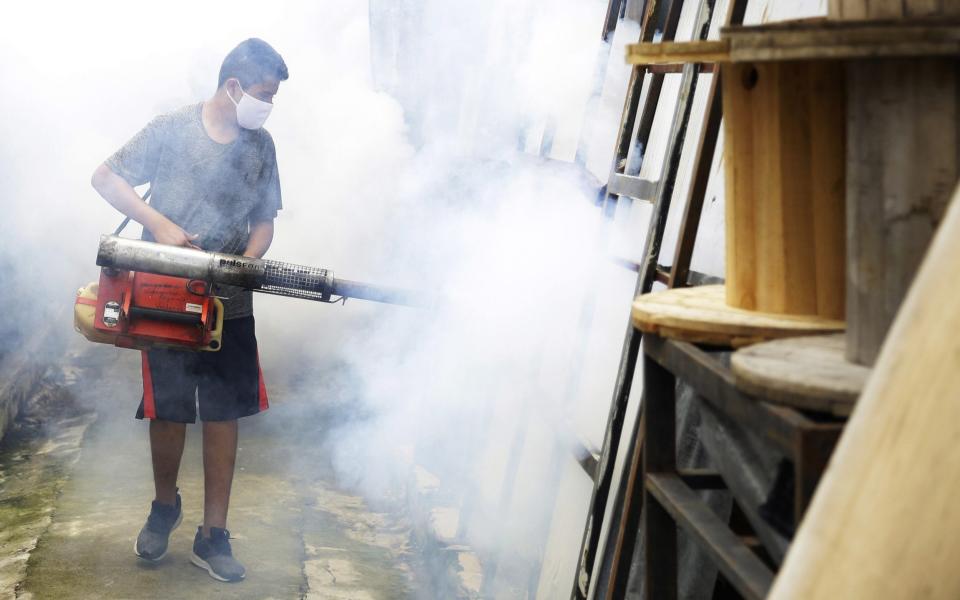
For around half of those it infects, the disease causes fever and joint pain that recedes quickly; but for the other half, it can lead to a form of arthritis that can last for months or even years.
Now, scientists led by the Jenner Institute at the University of Oxford, as well as a separate team at the pharmaceutical company Valneva, have shown positive results at different stages of clinical trials.
Jennifer Rigby has all the details.
10:25 AM'Just like it did after the 2008 crash, capitalism needs a reboot'
'Just like it did after the 2008 crash, capitalism needs a reboot'
It’s often said the 2008 Lehman collapse and its aftermath typified the drawbacks of capitalism. I don’t buy that for one moment, says Liam Halligan.
The financial crisis happened because “independent” central banks, egged on by myopic politicians, pumped up equity and debt markets with cheap money.
That caused inevitable problems because bank regulations, built over generations and designed to keep financial markets relatively orderly and mass speculation in check, had been severely diluted.
The point is that none of this utterly outrageous behaviour was due to capitalism or “free markets”. Why do I say that? Because, at every turn in the sorry saga of the 2008 crisis, “free markets” were roundly traduced.
I mention all this now because it strikes me that, once again, capitalism is seriously malfunctioning. And unless we do something about that, renewed crisis will ensue.
10:10 AMIran logs record number of Covid deaths
Iran logs record number of Covid deaths
Iran has recorded more than 500 Covid deaths today, its health ministry has said - a new high for the country since the start of the pandemic.
More to follow on this story...
09:56 AM'Britain was spared the worst of the authoritarian temptation - then came Covid'
'Britain was spared the worst of the authoritarian temptation - then came Covid'
Around the world, democracy is in retreat, writes Daniel Hannan.
The autocratic slide which began around the middle of the last decade reached a tipping point with the 2020 lockdowns. Authoritarianism is now in the ascendant both geopolitically (as power shifts from the West to China) and internally (as individuals demand the smack of firm government).
American conservatism has suddenly been transformed into something much closer to European authoritarianism of the kind embodied by, say, Marine Le Pen: interventionist, hostile to globalisation, impatient with parliamentary rule.
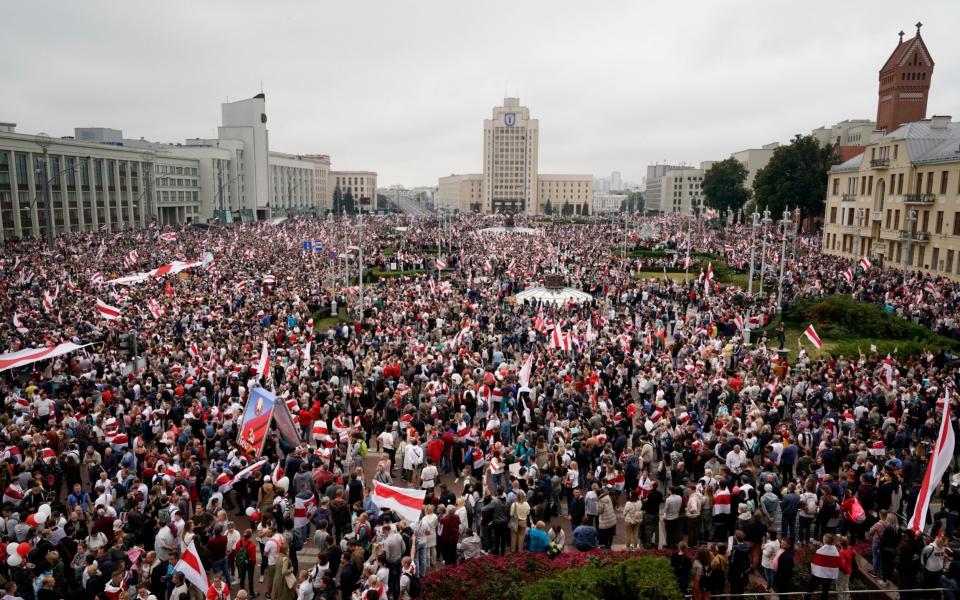
Luckily for us, Boris Johnson’s Rabelaisian personality, his horror at being bossed about, meant that Britain went into the lockdowns with, by global standards, an unusually liberal political culture.
But then came Covid, and all at once the country was full of petty dictators, demanding restrictions, raging at non-conformists, opposing any move to lift the prohibitions. The whole world was affected, but the change was especially noticeable in Britain, with its previously individualist culture.
09:39 AMStarmer warns of 'chaos and incompetence' ahead of second Covid exam results season
Starmer warns of 'chaos and incompetence' ahead of second Covid exam results season
Sir Keir Starmer has said that "chaos and incompetence" in Government could heighten stress for those receiving their A Level and GCSE results on Tuesday and Thursday respectively.
It is the second year in a row that exams have been cancelled due to the coronavirus pandemic, and so pupils will receive 'teacher-assessed' grades determined by their tutors.
"I have a very vivid memory of the day I got my A-level results - of the pressure, nerves and worry that my entire path could be determined by what was on that sheet of paper," Sir Keir Starmer said.
"It frustrates me immensely that this week's big moment in so many young people's lives is being risked by the chaos and incompetence at the top of this Government."
It comes after last year's A-level results day fiasco saw tens of thousands of results downgraded due to the algorithm used to determine them, which was subsequently followed by an about-turn in which the grading system was changed.
09:20 AMNew AI heart scanner will cut NHS backlog in half by delivering results in minutes
New AI heart scanner will cut NHS backlog in half by delivering results in minutes
An artificial intelligence heart scanner promises to cut the NHS backlog in half by delivering results within 15 minutes, scientists have found.
Created at the University of Oxford, the machine taught itself automatically to diagnose heart disease from images that would normally have been pored over by a team of doctors.
Crucially, the new system does not require the injection of a contrast dye.
Patients currently have to lie in an MRI scanner for 20 minutes during which images are taken, then come out to be injected with the dye, and then go back in for another 20 minutes. The procedure is expensive and precludes some patients who cannot tolerate the dye, which is detectable by the MRI, or who are afraid of needles.
Known as Virtual Native Enhancement (VNE), patients using the new system enter the scanner for a maximum of 15 minutes and the results are then computed immediately.
Our health and science correspondent Henry Bodkin has the full story.
09:07 AM‘Secretive’ Scottish government plans to extend Covid restrictions to 2022 under attack
‘Secretive’ Scottish government plans to extend Covid restrictions to 2022 under attack
Remaining Covid-19 restrictions such as face coverings and home working could still be in place next year, “sleekit and secretive” Scottish government guidance has disclosed.
New official advice, published with no formal announcement, said ministers anticipate “it may be necessary to keep some precautionary measures in place until early 2022”.
The document also disclosed that children under 12 would be exempt from “any requirement” to wear face coverings in public places from tomorrow.
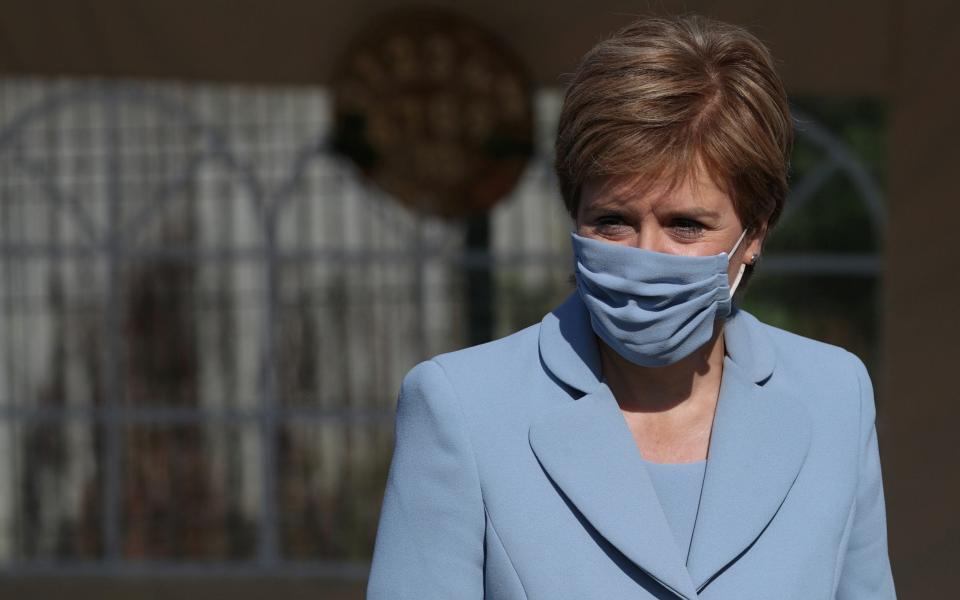
However, it recommended that the “small number” of 11-year-old secondary pupils in this category wear masks in classrooms and corridors, along with their older classmates.
The Conservatives questioned why such a “substantial change” in face mask policy had been published on the Scottish government website with no accompanying announcement.
Simon Johnson has more here.
08:53 AMPhilippines sees biggest rise in Covid deaths for four months
Philippines sees biggest rise in Covid deaths for four months
The Philippines has seen its biggest single-day rise in deaths with coronavirus for four months, new figures from the country's health ministry have shown.
There were 9,671 cases and 287 deaths recorded today, the highest jump in the number of Covid fatalities since April 9.
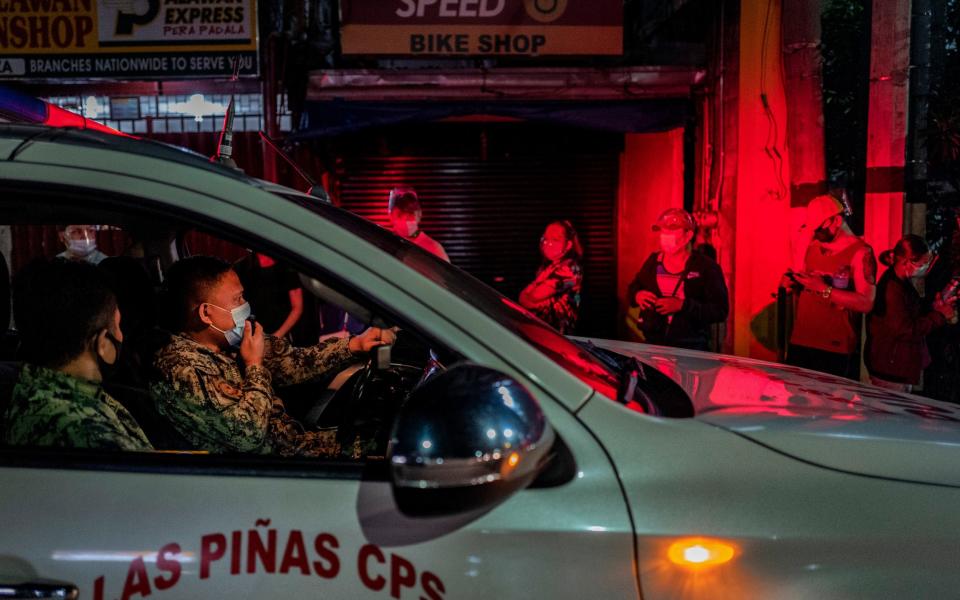
Total cases and deaths in the Philippines since the start of the pandemic now stand at 1.66 million and 29,122 respectively.
The figures also mark the country's highest caseload in almost four months. On Friday evening, authorities introduced a two-week lockdown across greater Manila - which covers 13 million people - meaning that residents can only leave their homes to buy essentials.
08:36 AMGlobal vaccine roll-out must sprint to the finish line to see off delta variant risk
Global vaccine roll-out must sprint to the finish line to see off delta variant risk
For much of the last fortnight many of us have been captivated by exhilarating action from Tokyo, as athletes at the peak of their careers and physical fitness battle for an elusive Olympic gold, notes Sarah Newey.
But scientists across the globe remain absorbed in a separate race: the fight between vaccines and variants.
By this point, we all know that viruses mutate. As they replicate, small “copying errors” creep into the genetic code – most have little consequence. But occasionally a mutation will be beneficial; it might make it slightly easier for the virus to enter human cells, or to avoid existing antibodies.
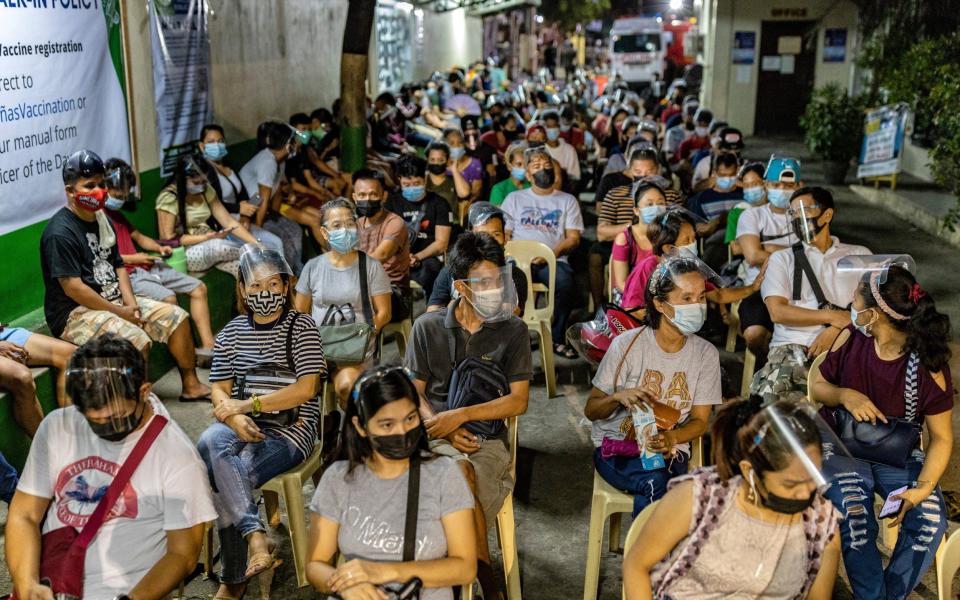
The most advantageous of these mutations are passed on and eventually become part of the virus’ default genome: a new, “fitter” variant has emerged.
This process can happen as Sars-Cov-2 spreads or in a single person. Scientists say the virus used "Patient S", the world's longest Covid sufferer, as a "gym" to get fitter - mutating 40 times over 11 months.
08:17 AMCholera outbreak kills almost 700 people in Nigeria
Cholera outbreak kills almost 700 people in Nigeria
A cholera outbreak in Nigeria has led to the death of almost 700 people in one of the country’s worst bouts of the deadly disease in recent years.
Almost half of the cases have been recorded in Nigeria’s northwest Kano and Jigwa states where most of the victims are children.
Nigeria’s Centre for Disease Control said that thousands of cases have been recorded in more than half of the country’s 36 states, leading to fears that the outbreak will soon turn into an epidemic.
A rapid surge in cases since March is putting further pressure on a national health system that is already struggling to cope with a deadly third wave of Covid-19, fuelled by the delta variant.
Nigeria recorded more than 700 coronavirus cases on Wednesday this week, the highest daily infection rate in more than six months. Doctors in Nigeria’s state-run hospitals have been on strike since Monday over poor salaries and dangerous working conditions, hindering authorities’ attempts to fight Covid-19 and cholera.
Tom Collins has the story.
08:01 AMHigher unemployment and lower wages: The curse of the Covid generation
Higher unemployment and lower wages: The curse of the Covid generation
For thousands of teachers and millions of school children across Britain, the hard work is only just beginning as they prepare for a second consecutive set of GCSE and A-level results blighted by the impact of the pandemic.
Experts believe the impact of lost schooling on careers, incomes and the wider economy will reverberate for decades, perhaps even a lifetime.
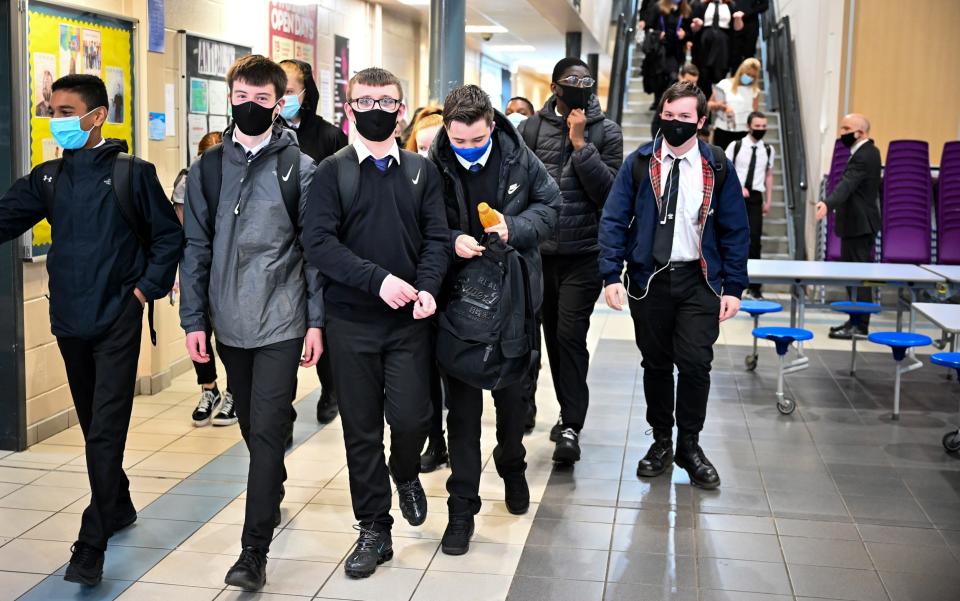
Experts say pupils have been victims of a lack of Government planning and a stingy Treasury only offering £3.1bn in catch-up funding – a fraction of what they argue is needed.
The total hit to earnings of lost learning to pupils could reach £40,000 over their lives and cost the economy dearly in the long-run.
Tom Rees unpacks the trouble that lies ahead for the Covid generation.
07:48 AMAstraZeneca starts shipping vaccine doses from Oxford to Europe
AstraZeneca starts shipping vaccine doses from Oxford to Europe
AstraZeneca has started to ship vaccine doses from a British factory to the EU in a move expected to thaw icy relations between the pharmaceutical giant and officials in Brussels, reports Hannah Boland.
Doses of the Covid-19 vaccine made in a factory in Oxford are understood to have started being distributed to the continent after a protracted dispute over why the site was not being used to supply EU countries.
The facility, which is run by Oxford Biomedica, proved a sticking point during the recent court case between Brussels and AstraZeneca.
The pharma firm had argued that it had struck a deal with the UK Government earlier than the EU, and had agreed to prioritise UK citizens when it came to doses made in Britain.
As part of the ruling, a court in Brussels said AstraZeneca’s decision to not use the facility was inconsistent with a clause in the EU contract whereby AstraZeneca agreed to use “best reasonable efforts” on supply.
07:33 AMTop scientists remain puzzled over how and why Covid spreads
Top scientists remain puzzled over how and why Covid spreads
In 15th-century Italy, a puzzling epidemic swept through the population, its origins and spread so baffling it was named “influenza” from the Italian “influence of the stars”.
Today, nearly 600 years later, the world is facing an equally perplexing respiratory virus, with unclear origins and confounding transmission dynamics.
Even now, after nearly two years of scientific endeavour, which has given us multiple vaccines and drugs to fight coronavirus, we’re still not completely sure about how it spreads or how to stop it. It is why the mask debate rages on.
One of the biggest arguments between scientists is whether the virus is truly airborne, by which we mean that it is floating around in sufficient quantities to have a noticeable impact on infections.
Our science editor Sarah Knapton has this analysis.
05:40 AMChina's variant numbers continue to rise
China's variant numbers continue to rise
China reported 96 new cases of Covid on the mainland for Saturday, down from 107 cases a day earlier, the country's health authority said today.
The latest clusters were mainly driven by the highly transmissible delta variant.
Among the new confirmed infections, 81 were locally transmitted.
05:35 AMBrunei detects locally transmitted cases
Brunei detects locally transmitted cases
Brunei has imposed strict curbs to halt the spread of Covid-19 after finding its first locally transmitted cases in the country in more than a year.
Seven community infections were found, the health ministry said on Saturday, leading the government to close all places of worship and postpone social events for two weeks.
Mass events are limited to groups of 30 people over this period as school classes are moved online and restaurants barred from serving dine-in.
The tiny Islamic sultanate has largely remained coronavirus free, logging only three deaths since the pandemic began.
More than half of its 347 infections so far were imported, with tight border controls and quarantine measures keeping the virus' spread in check.
03:32 AMAustralia's struggle with delta continues
Australia's struggle with delta continues
Australia's three most populous states of New South Wales, Victoria and Queensland reported 282 locally acquired Covid infections today, with authorities struggling to quell outbreaks of the delta variant.
NSW reported 262 fresh cases, down from the pandemic high of 319 seen on Saturday, with more than five million people in Sydney regions along the coastline under a lockdown for six weeks already.
One woman in her 80s died overnight, bringing the total number of deaths in the current outbreak to 28.
Neighbouring Victoria reported 11 new locally acquired cases, as the state remains under a seven-day strict lockdown.
Queensland recorded nine new local cases, with parts of the state to come out of lockdown today, but a three-day lockdown has been imposed on the city of Cairns after a report of a case with unknown origin.
01:59 AMToday's top stories
- AstraZeneca has started to ship vaccine doses from a British factory to the EU in a move expected to thaw icy relations between the drugmaker and Brussels officials.
- In 15th-century Italy, a puzzling epidemic swept through the population, its origins and spread so baffling it was named “influenza” from the Italian “influence of the stars”; today, nearly 600 years later, the world is facing an equally perplexing respiratory virus, with unclear origins and confounding transmission dynamics.
- New coronavirus variants could be named after star constellations once letters of the Greek alphabet are exhausted, a senior World Health Organisation official has suggested.
- An artificial intelligence heart scanner promises to cut the NHS backlog in half by delivering results within 15 minutes, scientists have found.
Today's top stories
- AstraZeneca has started to ship vaccine doses from a British factory to the EU in a move expected to thaw icy relations between the drugmaker and Brussels officials.
- In 15th-century Italy, a puzzling epidemic swept through the population, its origins and spread so baffling it was named “influenza” from the Italian “influence of the stars”; today, nearly 600 years later, the world is facing an equally perplexing respiratory virus, with unclear origins and confounding transmission dynamics.
- New coronavirus variants could be named after star constellations once letters of the Greek alphabet are exhausted, a senior World Health Organisation official has suggested.
- An artificial intelligence heart scanner promises to cut the NHS backlog in half by delivering results within 15 minutes, scientists have found.

